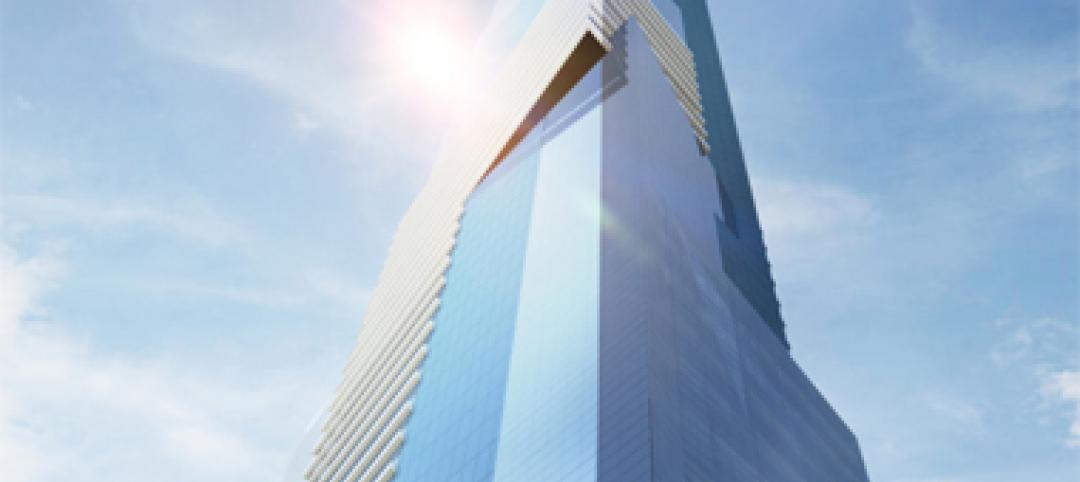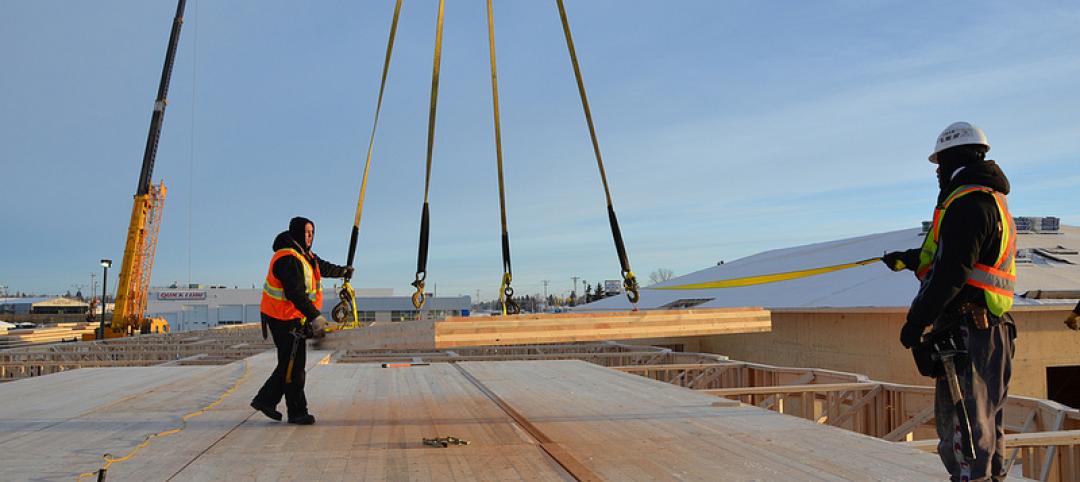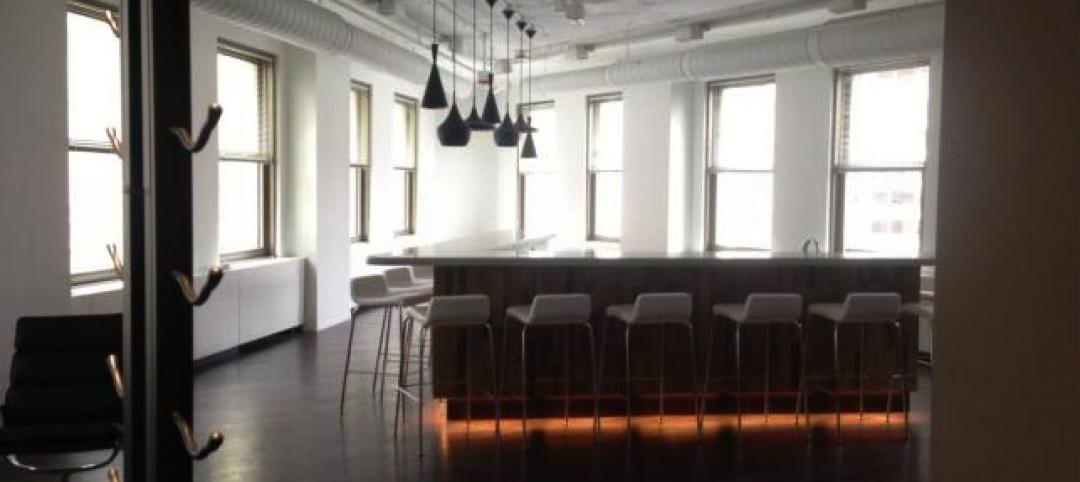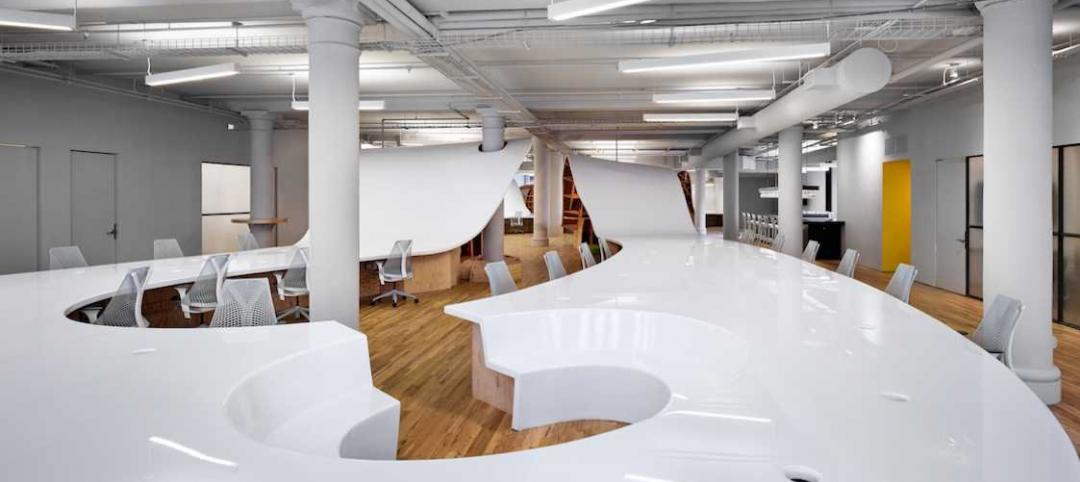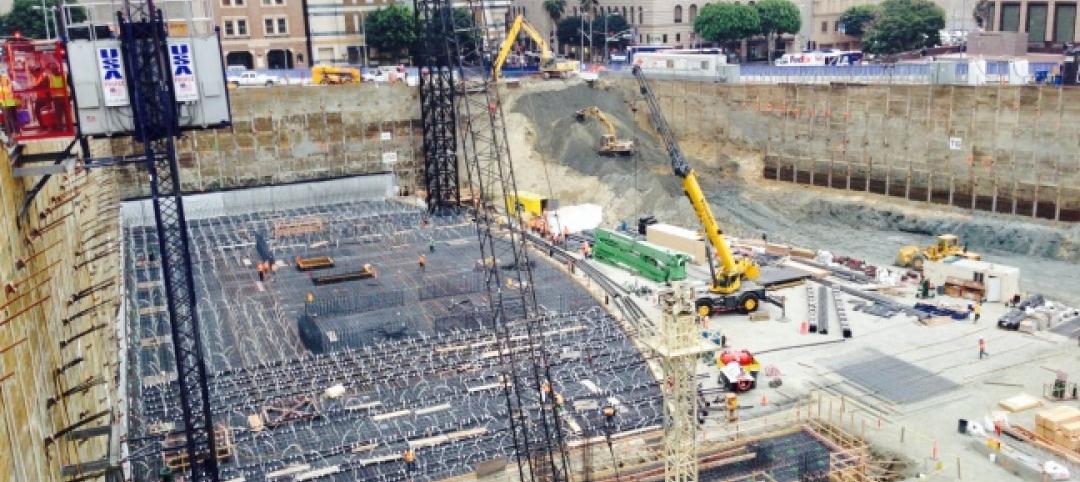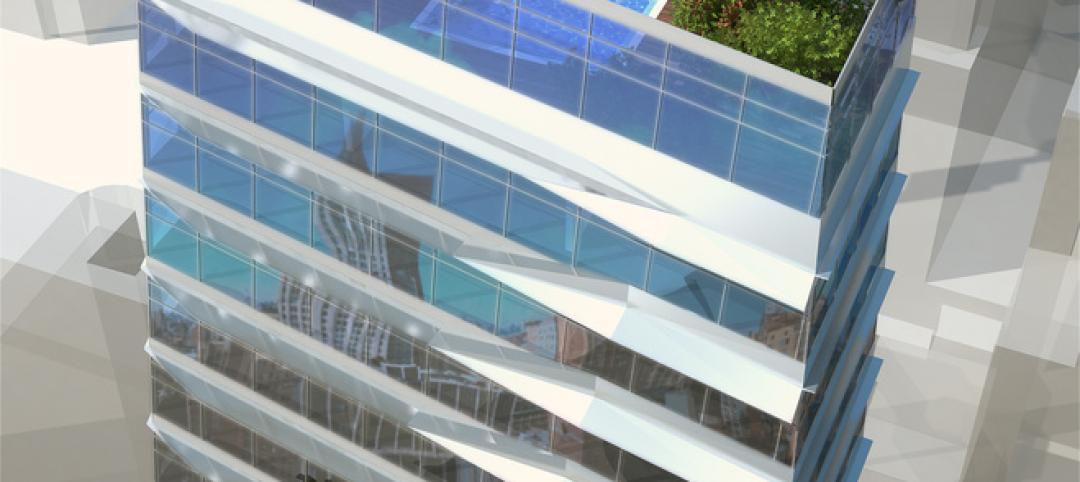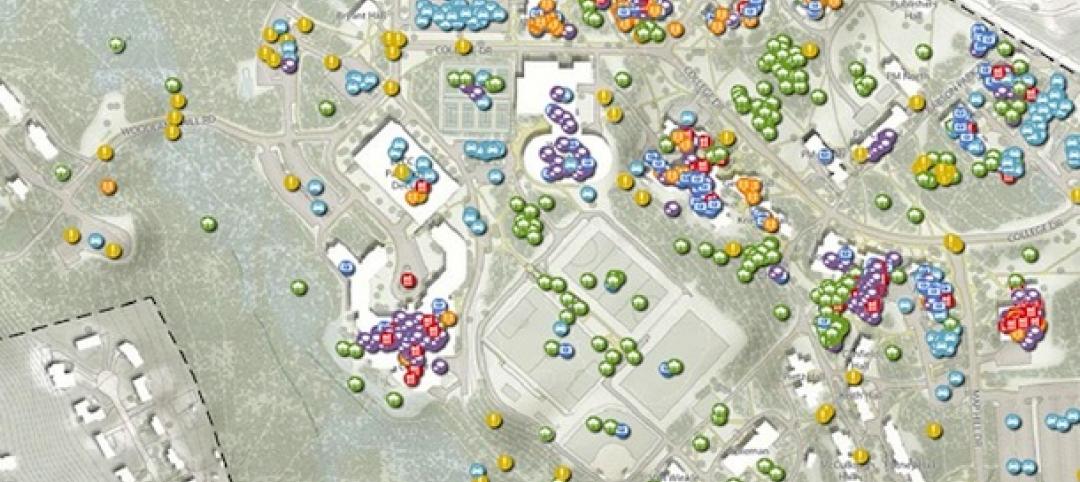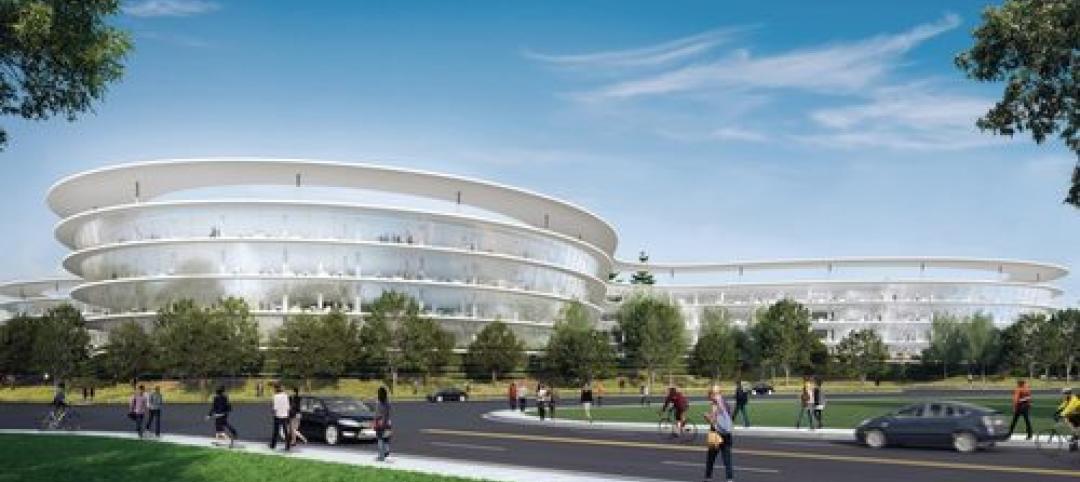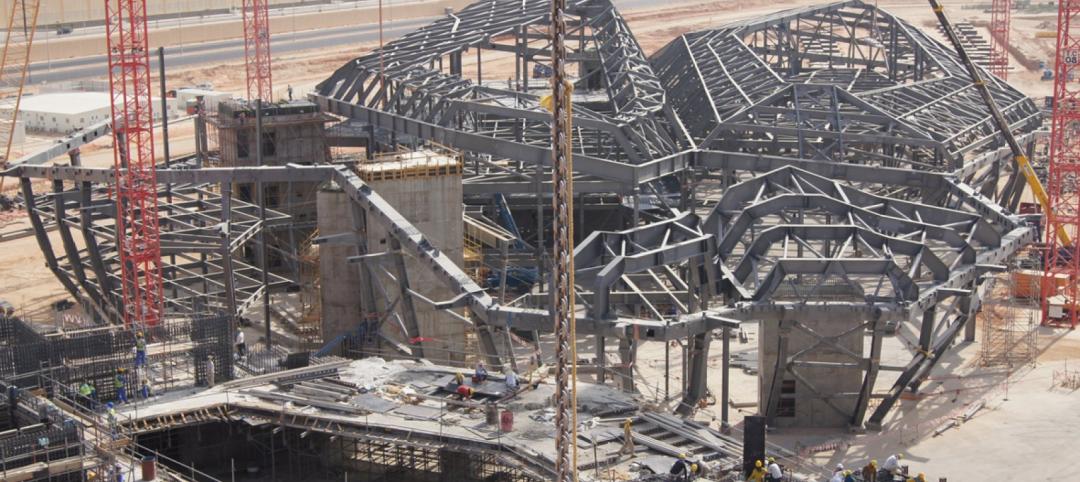Employees place more value on physical elements that support well-being and convenience—such as natural light, views of the outdoors, and food—than on “service” amenities like fitness centers and onsite childcare.
That’s one of the findings of a new survey that examines how workplace experience can boost employee engagement. CBRE’s Workplace practice analyzed responses from more than 1,600 employees in the U.S. and Canada to gauge aspects of the work environment that impact their employee experience.
Future Workplace, an HR advisory and research firm, conducted the survey in partnership with View Inc., a technology company that focuses on creating smart and connected buildings. They sent the survey to employees of all ages, ranging from Generation Zers (4%), millennials (40%) and Gen Xers (38%) to baby boomers (17%) and even the Silent Generation (less than 1% of responses).
There was only marginal generational variation in workplace dissatisfaction levels. Indeed, the majority of those polled (71%) report feeling involved in and enthusiastic about their work and organizations. More than half (57%) said they would recommend their company to someone seeking work.
But the survey wondered just how deep this enthusiasm is, especially when 51% of respondents exhibit low engagement (at best, they are neutral about their workplaces), and 35% exhibit only moderate engagement.
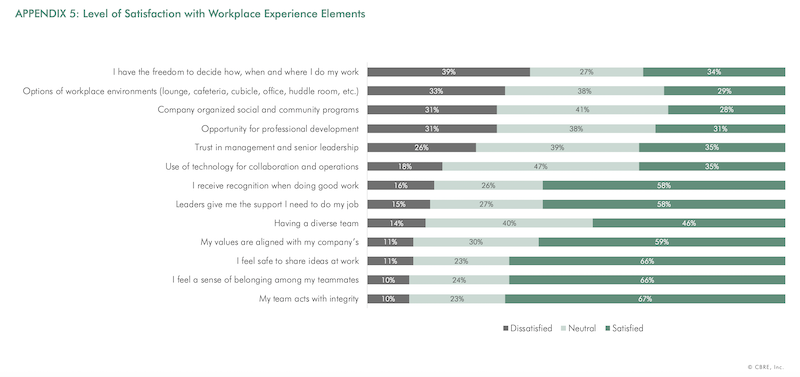
The survey shows that a sizable portion of workers still aren't all that satisfied with their workplace's flexibility or amenities.
The most valued perks or amenities in offices include view of outdoors and natural light (which 53% of respondents cited), an onsite café (44%), a kitchen (37%), and open office space (28%). “Integrated strategically, food is a key element of fostering community and culture within an organization,” the report states. There are also any number of variables that can impact employee engagement, including trust in management and its willingness to listen to new ideas, shared values, opportunities for career advancement, leadership support, and workplace flexibility.
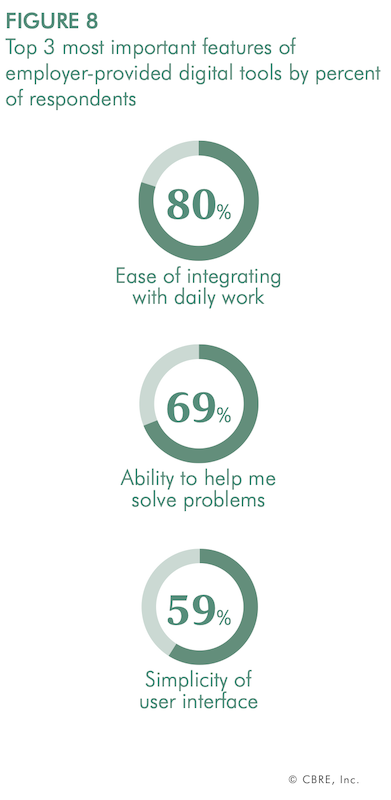
Regardless of how tech savvy they are, employees still want simplicity in the digital tools they use at the office.
The results of the survey reveal that to drive increased engagement and organizational impact, workplace investment should target creating an emotional connection between employees and their employers. When leveraged, the physical environment provides an opportunity to reinforce these emotional elements of workplace experience.
“Trust is reinforced by environments that make employees’ impact and work processes visible. Values are signaled by space allocation hierarchy and investment in experiences that support culture, well-being and ease of work,” says Nina Charnotskaia, Senior Director of CBRE’s Workplace practice.
The survey confirms a trend that’s been happening for a while in workplaces across the country: The office is no longer simply a place for work; it is a destination where employees connect, feel a sense of community, understand organizational objectives and feel their impact on a greater whole.
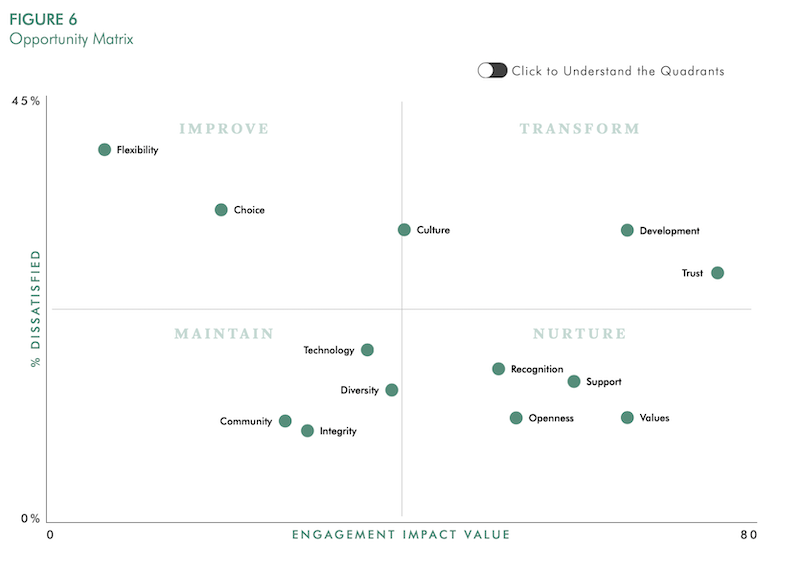
This “Opportunity Matrix” prioritizes investments toward employee engagement.
CBRE created an “Opportunity Matrix” to guide companies’ prioritization of investment for impact into four actionable quadrants: Improve, Transform, Maintain, and Nurture.
For example, the “transform” quadrant highlights the most impactful elements of experience, including trust in leadership, opportunities for professional development, and experiences that drive organizational culture. These elements need investment to achieve their greatest potential in transforming engagement.
The “nurture” quadrant suggests that employees already feel recognized, supported and valued at work, and they are engaged as a result. These experiences must be nurtured and held to the standards employees are accustomed to or they could challenge engagement in the future.
Treating the workplace as a tool that reflects and supports organizational values changes the priority of certain workplace investments. Commercial real estate leaders must understand what each investment decision is “saying” to employees and optimize it for the intended message.
“If senior management can impact employee engagement positively, it can influence better recruitment and retention of talent,” says Damla Gerhart, Senior Managing Director of CBRE’s Workplace practice.
Related Stories
| Feb 25, 2014
NYC's Hudson Spire would be nation's tallest tower if built
Design architect MJM + A has released an updated design scheme for the planned 1,800-foot-tall, superthin skyscraper.
| Feb 20, 2014
5 myths about cross laminated timber
A CLT expert clears up several common misconceptions and myths surrounding the use of wood as a building material.
Sponsored | | Feb 20, 2014
Chicago’s historic Wrigley Building renovated to attract tech companies
Purchased in 2011 by a consortium of investors led by BDT Capital Partners, the building’s new owners have recently renovated and reimagined the next life for this architectural landmark—as a hub for tech firms.
| Feb 20, 2014
World's longest desk? Massive, undulating desk accommodates 145 office workers [video]
The desk is built from plywood and one continuous sheet of resin, and can serve all 145 office employees at once.
| Feb 19, 2014
It's a world record! Largest uninterrupted concrete pour kicks off Wilshire Grand project
Guinness World Records verifies the concrete pour as the largest ever
| Feb 17, 2014
Developer plans to 'crowdfund' extended stay hotel in Manhattan
Want to own a piece of Manhattan hotel real estate? Developer Rodrigo Nino is inviting individual investors to put up $100,000 each for his latest project, 17 John.
| Feb 14, 2014
Crowdsourced Placemaking: How people will help shape architecture
The rise of mobile devices and social media, coupled with the use of advanced survey tools and interactive mapping apps, has created a powerful conduit through which Building Teams can capture real-time data on the public. For the first time, the masses can have a real say in how the built environment around them is formed—that is, if Building Teams are willing to listen.
| Feb 13, 2014
Related Companies, LargaVista partner to develop mixed-use tower in SoHo
The site is located at the gateway to the booming SoHo retail market, where Class A office space is scarce yet highly in demand.
| Feb 12, 2014
First Look: Futuristic Silicon Valley campus designed to draw tech startups
The curved campus will consist of four different buildings, one exclusively for amenities like a coffee bar, bike shop, and bank.
| Feb 7, 2014
Zaha Hadid's 'white crystal' petroleum research center taking shape in the desert [slideshow]
Like a crystalline form still in the state of expansion, the King Abdullah Petroleum Studies and Research Center will rise from the desert in dramatic fashion, with a network of bright-white, six-sided cells combining to form an angular, shell-like façade.



